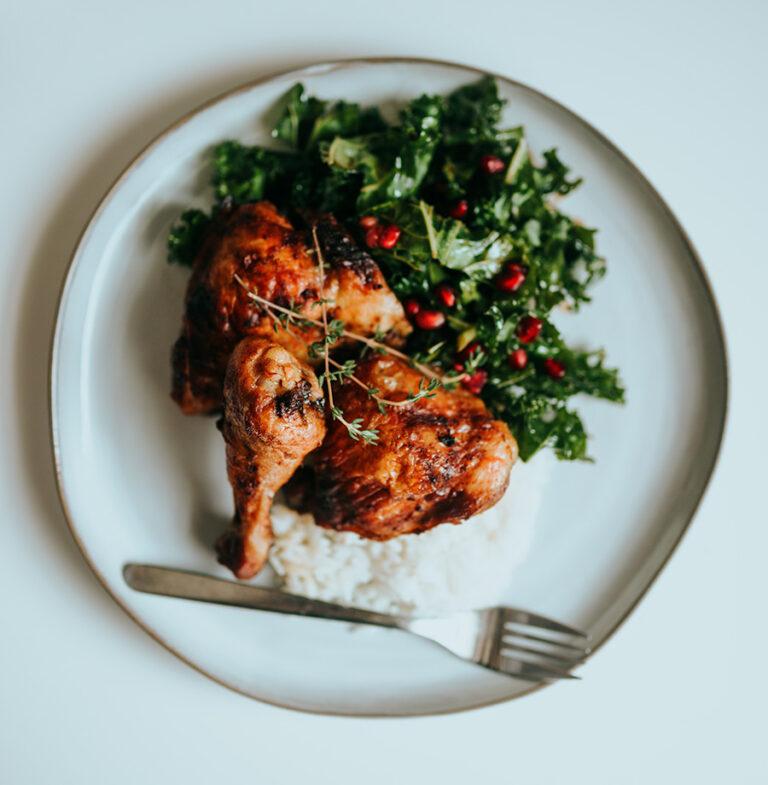A staple dish in Peruvian cuisine, turtles eggs are being illegally poached in the upper Peruvian Amazon, with little oversight or intervention from authorities. Belén, a floating market in the town of Iquitos, has long been a hub for illegally trading turtles and their eggs, fueling a phenomenon that is threatening several species of Amazonian turtles. Poachers harvest not just the eggs, but also take away the nesting turtles, further threatening the sustainability of the trade. A local conservation group in Tapiche is working to protect the eggs and turtles before poachers get to them and hopes that more awareness will improve turtles’ chances of survival. IQUITOS, Peru — “Oh, they’re so delicious,” said Soledad Coronil, an elderly local woman, as she enjoyed a boiled tortoise egg earlier this year. “You have to open the shell and dig out the insides, either with your hand or with a spoon. I like to add a bit of salt, too.” Coronil’s meal, which came from a yellow-footed tortoise ( Chelonoidis denticulata ) is not uncommon in a country that serves bull testicles, llama jerky and guinea pig. In the Peruvian Amazon, turtle eggs are a cherished — and illegal — delicacy. And the only way to get them is via illegal poachers. Peruvian authorities have grappled with the ongoing and brazen issue for decades, unable to effectively curb the illicit trade. Factors such as corruption, being stretched too thin and other more pressing forms of crime have all played a role. Turtle eggs are a culinary staple in Iquitos, the Peruvian Amazon’s unofficial capital, with dishes such as “river turtle in ginger on rice” or “turtle eggs with garlic sauce” frequently present on the city’s restaurant menus. Between 2015 and 2020, two of the nine most-trafficked species in Peru were turtles: the yellow-spotted Amazon river turtle ( Podocnemis unifilis ), locally known as taricaya , and the yellow-footed tortoise. Both species, listed as vulnerable on the IUCN Red List of Threatened Species, can be found, butchered but still writhing, in Belén, Iquitos’ notorious wet market. At the headwaters of the Amazon River and up the Ucayali and Tapiche tributaries, egg poaching is rampant, said Yesenia Fernanda Galán, a Peruvian conservationist. Amazonian aquatic turtles most commonly live in slow-moving oxbow ponds, but they lay eggs on the riverbanks, which makes them vulnerable to poachers. Iquitos itself lies upstream from Très Fronteras, the area where Brazil, Colombia and Peru converge, which has become a hotspot for the illegal wildlife trade along the Amazon River. Wildlife trafficking is big business in Peru. Hunting wild animals for sustenance is legal for Indigenous communities in the Peruvian Amazon, but selling them is banned. Over the last two decades, authorities have seized more than 100,000 live wild animals from illegal trafficking across the country, according to the National Forest and Wildlife Service of Peru. While much of Peru’s illicit wildlife industry is fueled by an international market, turtle eggs feed a domestic appetite, being prized on the black market. Three eggs can sell for about 5 Peruvian soles ($1.33) while a nest goes for about 50 soles ($13.28), which makes poaching appealing in an area where many people live below the poverty line. The eggs’ alleged superfood reputation — the belief they ward off anemia and malnutrition, and have aphrodisiac properties — ensure high demand. Many studies on sea turtle eggs suggest adverse health effects, though less is known about freshwater river turtles and tortoises in the Amazon. “I buy nine, maybe 10, eggs a week. My kids eat them, and it’s healthy. And the [turtle) meat is also very good,” said Ana Sofía Campos, a young mother who’d just purchased 10 turtle eggs for 15 soles ($3.98). Campos said that other traditional turtle dishes, including estofado de tortuga (stewed turtle cooked in vinegar and soy sauce with fried plantains), zarapatera (an oniony soup cooked inside the tortoise shell) and picadillo (turtle meat, potatoes and a tomato sauce mixture) make her “very happy.” “The issue lies in the fact that egg collection is essentially ‘free for all.’ If a poacher were to leave a nest alone, it’d just be snatched by a different poacher,” said Aiden Colligan, a field biologist who runs the Tapiche Citizen Science Turtle Rescue Project , more than 400 kilometers (250 miles) upriver from Iquitos. “Not to mention that leaving a fresh nest full of eggs is essentially akin to declining free money.” In winter, river levels drop, marking the start of nesting season; under the moonlight, freshwater turtles clamber onto the newly exposed riverbanks to lay their eggs. Navigating the Tapiche River, poachers keep their eyes on the prize. “We find a turtle laying its egg, wait until she has finished, then capture the entire nest and the turtle,” Luz Sancho, a former poacher who now sells bushmeat, told Mongabay. Mother turtles are weak from laying eggs, becoming “easy targets. So poachers won’t only impede the eggs to become a next generation of turtles, but they decrease the existing population,” said Jana Reintjes, a German conservationist who worked with the Tapiche Turtle Rescue Project. Many fishermen simply harvest nests when they come across them, making easy cash. Police are not an issue. “It is very difficult for authorities to monitor poaching in the Amazon,” said Galán. “The odds of them being confronted by police are low, and even if they are, I know many poachers just bribe their way out.” Restaurants are not held accountable either. Mariano Cotilla, owner of a local eatery with turtle eggs on the menu, said authorities don’t check his business for product sourcing. He buys the eggs from Belén market. “[Police] never bother me about it.” Business as usual in Belén Business as usual in Belén
The bustling heart of Iquitos’ floating shantytown, Belén market is the local hub for illegally trading turtle eggs in bulk. The open-air market isn’t for the faint of heart. Huts, perched on rafts, move up and down the river, while wooden canoes navigate in between, selling jungle goods. One can buy flour, rice and sugar, but also bottled ayahuasca, grilled larvae and skinned monkeys. Dried heads of yellow-footed tortoises are sold to women to tame jealous men. Jaguar skins and teeth, peccary hooves, agouti paws, beheaded caimans and giant plastic containers filled with turtle eggs are all sold illegally here. “You gringos are always so shocked,” Sancho laughed from his stall. “You see us eating turtles, and you cannot believe it. Too bad for you. More for us.” Regional authorities steer clear of Belén to not interfere with longstanding local customs and for fear of retribution, according to a local tour guide, who asked to remain anonymous. By the time the COVID-19 pandemic arrived in 2020, a United Nations plan to modernize Belén had been five years in the making. Officials were concerned that without health measures in place, Belén could spread zoonotic diseases. “In Belén, the consumption of unsanitary products, inadequate solid waste management, citizen insecurity, overcrowding of vendors and inadequate working conditions are all major problems,” Karim Capristán, UNDP Peru communications adviser, said. “Peru’s Ministry of Production sought our support in 2015 to help build a new market and to enhance local capacities of vendors and local governments.” The COVID-19 pandemic only increased concerns around wet markets like Belén. The new market was expected to indirectly help mitigate environmental issues such as wildlife trafficking, especially of endangered species. But in 2023, when the $25,000 proposal reached its final evaluation stage, the plan was scrapped. “Due to numerous political and other reasons, this project will not be implemented,” a U.N. statement read. Capristán told Mongabay that “the execution of the work was paralyzed because of contractual and financial aspects.” Lockdowns during the pandemic and the region’s political and social instability also played a role. In 2023, UNDP passed the project to Peru’s Ministry of Production, which has plans to continue it, though it’s not clear when. Belén is a place resistant to change. Few know this better than Tomás Costa, an Argentinian reporter who has lived in Peru since 2019, who said drug trafficking, prostitution, poverty and robberies proliferate here. For an already strained local police force, turtle eggs aren’t a high priority. Journalists and police alike are wary of the market because “locals are suspicious of outsiders,” Costa said. “A lot of outsiders, including members of the Peruvian government, are viewed as a threat. Locals worry we will affect their income, their ability to feed themselves. So, it can be a hostile place to work.” Conservationists fighting for the turtles Conservationists fighting for the turtles
A local citizen-led conservation program, the Tapiche Citizen Science Turtle Rescue has a simple objective: Get to turtle nests before poachers do. Each year, between June and August, Tapiche’s team scours the muddy riverbanks for nests of three turtle species: the Arrau ( Podocnemis expansa , known locally as charapa ), the six-tubercled Amazon River turtle (Podocnemis sextuberculata, locally known as cupiso) and the taricaya . Started in 2014, the project collected between 1,000 and 2,000 eggs per season in its early years, according to former coordinator Jana Reintjes. Soon, Tapiche began employing locals. In 2018, it started logging data, and since then, the number of eggs — and subsequently, the number of turtles the group is able to release — has increased. Once collected, eggs are reburied in incubation boxes near Tapiche’s remote reserve, located 12 hours (four by bus, another four by ferry and the last four by speedboat) from Iquitos, deep in the rainforest. When the eggs hatch, the turtles are cared for until strong, then released into the rivers and lagoons around the reserve. A refuge for turtles, the place has become a target for poachers, Reintjes said. “It has always been really important that we avoid conflicts with locals, so our goal was to always get to the beaches first and collect the nests before poachers could get to them,” she said. “If we collected most of the nests early, poachers wouldn’t try to come back to collect eggs, because it didn’t make any sense economically to use a lot of gas to get to the reserve when they weren’t successful in collecting eggs.” If locals were to leave nesting mother turtles alone when harvesting eggs, it would ensure the longevity of the species, helping poachers in the long run, Colligan explained. But according to Reintjes, they often don’t know the implications of their acts, focusing on immediate economic gain. She said poachers are simply trying to earn a living; most aren’t hostile and tend to flee if Tapiche staff are around. Colligan said harvesting turtle eggs could become sustainable, but tracking the number of eggs collected and enforcing a harvest quota remain difficult. Changing local perceptions could also be a solution. “Most locals are surprised and curious as to why we hatch eggs rather than consume them,” Colligan said. “We hope to promote an understanding that our efforts are beneficial to the turtle population and egg harvesting outside the reserve in the long run. In this way, there will still be turtles here for future generations to see and harvest.” While haggling with a potential customer over a kilogram (2.2 pounds) of tortoise eggs, former poacher Alex Barrueco said the turtles were not the region’s main problem. He blamed the cattle and extractive industries for destroying the Amazon Basin. “All of these foreign NGOs and activists are sounding the alarm on Belén, but it is their demand for things like beef and petroleum that is slashing and burning the jungle most,” he said, pointing toward the rainforest. “They are hypocrites. Before you come here and tell us to stop our practice, tell your governments and your corporations to stop clearing the jungle. Then maybe we can talk about turtle eggs.” Banner image : Yellow spotted turtles. Image by Ryan Biller. FEEDBACK: Use this form to send a message to the author of this post. If you want to post a public comment, you can do that at the bottom of the page.
This content was originally published here.




















